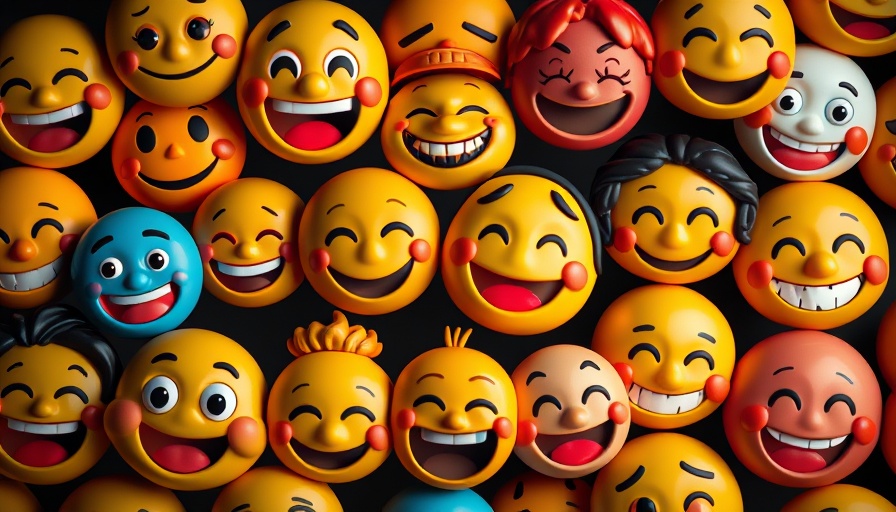
Understanding the Role of Emojis in Digital Communication
In today’s digital age, connections and perceptions are greatly influenced by how we communicate online. A recent study conducted by communication scientist Eun Huh at the University of Texas at Austin sheds light on a surprising facet of this phenomenon: the role of emojis. According to the research, emojis—those little faces and symbols—do not necessarily make you more liked in conversations, but they do significantly enhance the feelings of closeness and satisfaction between friends.
The Power of Perceived Responsiveness
The study involved 260 participants who analyzed various text message dialogues, some containing emojis and others devoid of any. When emojis were included, participants rated the senders as more responsive, which in turn led to feelings of greater relational satisfaction. This reinforces the idea that non-verbal cues, often overlooked in text-based communication, play a crucial role in how we perceive interactions. Emotional expressions, even digitally conveyed, can bridge gaps that words alone may fail to close.
Implications for Maintaining Relationships
Using emojis, especially among peers who may not see each other often, can serve as a tool for building rapport. In a world where many carry out a significant portion of their social interactions through messages, small symbols can foster a sense of intimacy that plain text cannot. This goes beyond the personal realm, affecting how we relate to colleagues and friends, suggesting that a heart emoji sent during a text exchange might just solidify a positive working relationship.
Modern Communication Trends: Emoji Usage
The data from this study runs parallel to a broader trend in communication, where younger generations are increasingly using emojis to enhance their messaging experiences. This trend paints a picture of a culturally evolving language where symbols take on meanings as significant as words themselves. As these patterns continue to rise, understanding the psychological elements behind emoji usage could yield insights into the future of interpersonal communication.
Counterarguments: Are Emojis Always Necessary?
While many embrace the use of emojis, there are proponents of straightforward communication who argue that they can introduce ambiguity into messages. Critiques often revolve around the potential for misinterpretation. Are we relying too heavily on these symbols? Furthermore, some argue that overusing emojis may convey immaturity or unprofessionalism, particularly in formal communications. Thus, the key may lie in balance—using emojis judiciously to enhance, rather than replace, meaningful conversation.
The Educational Value of Understanding Emoji Use
This research provides important food for thought for educators and communicators alike. Consideration of emojis as part of cultural literacy may be valuable, particularly in fields like marketing and public relations, where understanding audience sentiment can be pivotal. A well-timed smiley face can be the difference between a neglected message and one that stands out, cultivating a loyal audience.
Insights on Emotional Engagement
Emojis serve not just as decorative elements, but as potent tools for emotional expression. They cater to the innate human desire for connection—something that is particularly crucial in today's fast-paced digital communication environment. Emotional engagement, guided by strategic use of emojis, can lead to deeper connections and a more satisfying social experience. In a time when loneliness can be a prevalent sentiment, emojis might offer a solution for nurturing relationships.
Concluding Thoughts: Why Communication Matters
The nuances of digital communication, as shown through this study, highlight the importance of understanding how our messages are received. By consciously embracing the subtlety of emojis, we may foster closeness and satisfaction in our relationships, both personal and professional. As communication evolves, learning to adapt and leverage these tools appropriately will be vital for cultivating meaningful relationships in our increasingly connected world.
 Add Element
Add Element  Add Row
Add Row 



 Add Row
Add Row  Add
Add 


Write A Comment